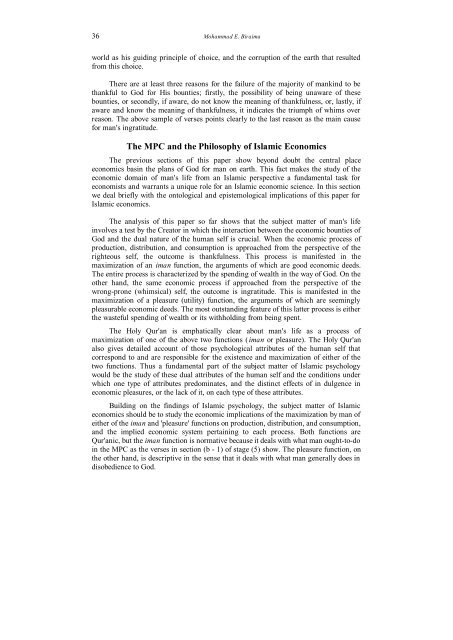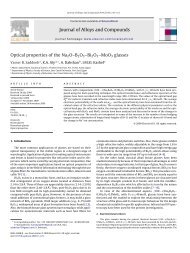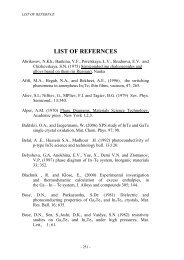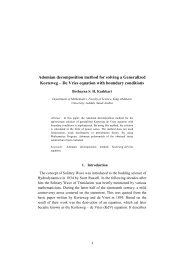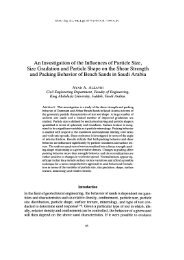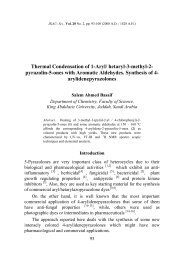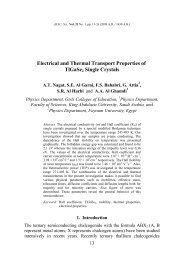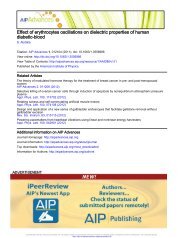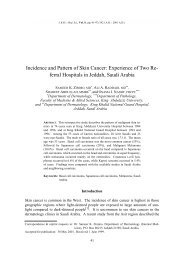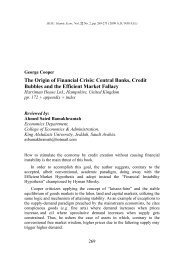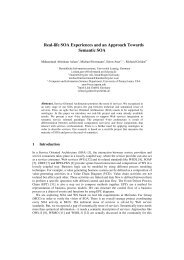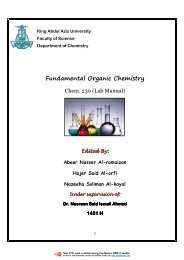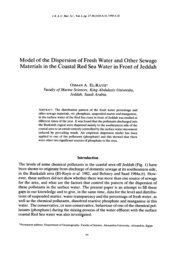A Qur'anic Model for a Universal Economic Theory
A Qur'anic Model for a Universal Economic Theory
A Qur'anic Model for a Universal Economic Theory
You also want an ePaper? Increase the reach of your titles
YUMPU automatically turns print PDFs into web optimized ePapers that Google loves.
36 Mohammad E. Biraima<br />
world as his guiding principle of choice, and the corruption of the earth that resulted<br />
from this choice.<br />
There are at least three reasons <strong>for</strong> the failure of the majority of mankind to be<br />
thankful to God <strong>for</strong> His bounties; firstly, the possibility of being unaware of these<br />
bounties, or secondly, if aware, do not know the meaning of thankfulness, or, lastly, if<br />
aware and know the meaning of thankfulness, it indicates the triumph of whims over<br />
reason. The above sample of verses points clearly to the last reason as the main cause<br />
<strong>for</strong> man's ingratitude.<br />
The MPC and the Philosophy of Islamic <strong>Economic</strong>s<br />
The previous sections of this paper show beyond doubt the central place<br />
economics basin the plans of God <strong>for</strong> man on earth. This fact makes the study of the<br />
economic domain of man's life from an Islamic perspective a fundamental task <strong>for</strong><br />
economists and warrants a unique role <strong>for</strong> an Islamic economic science. In this section<br />
we deal briefly with the ontological and epistemological implications of this paper <strong>for</strong><br />
Islamic economics.<br />
The analysis of this paper so far shows that the subject matter of man's life<br />
involves a test by the Creator in which the interaction between the economic bounties of<br />
God and the dual nature of the human self is crucial. When the economic process of<br />
production, distribution, and consumption is approached from the perspective of the<br />
righteous self, the outcome is thankfulness. This process is manifested in the<br />
maximization of an iman function, the arguments of which are good economic deeds.<br />
The entire process is characterized by the spending of wealth in the way of God. On the<br />
other hand, the same economic process if approached from the perspective of the<br />
wrong-prone (whimsical) self, the outcome is ingratitude. This is manifested in the<br />
maximization of a pleasure (utility) function, the arguments of which are seemingly<br />
pleasurable economic deeds. The most outstanding feature of this latter process is either<br />
the wasteful spending of wealth or its withholding from being spent.<br />
The Holy Qur'an is emphatically clear about man's life as a process of<br />
maximization of one of the above two functions (iman or pleasure). The Holy Qur'an<br />
also gives detailed account of those psychological attributes of the human self that<br />
correspond to and are responsible <strong>for</strong> the existence and maximization of either of the<br />
two functions. Thus a fundamental part of the subject matter of Islamic psychology<br />
would be the study of these dual attributes of the human self and the conditions under<br />
which one type of attributes predominates, and the distinct effects of in dulgence in<br />
economic pleasures, or the lack of it, on each type of these attributes.<br />
Building on the findings of Islamic psychology, the subject matter of Islamic<br />
economics should be to study the economic implications of the maximization by man of<br />
either of the iman and 'pleasure' functions on production, distribution, and consumption,<br />
and the implied economic system pertaining to each process. Both functions are<br />
<strong>Qur'anic</strong>, but the iman function is normative because it deals with what man ought-to-do<br />
in the MPC as the verses in section (b - 1) of stage (5) show. The pleasure function, on<br />
the other hand, is descriptive in the sense that it deals with what man generally does in<br />
disobedience to God.


